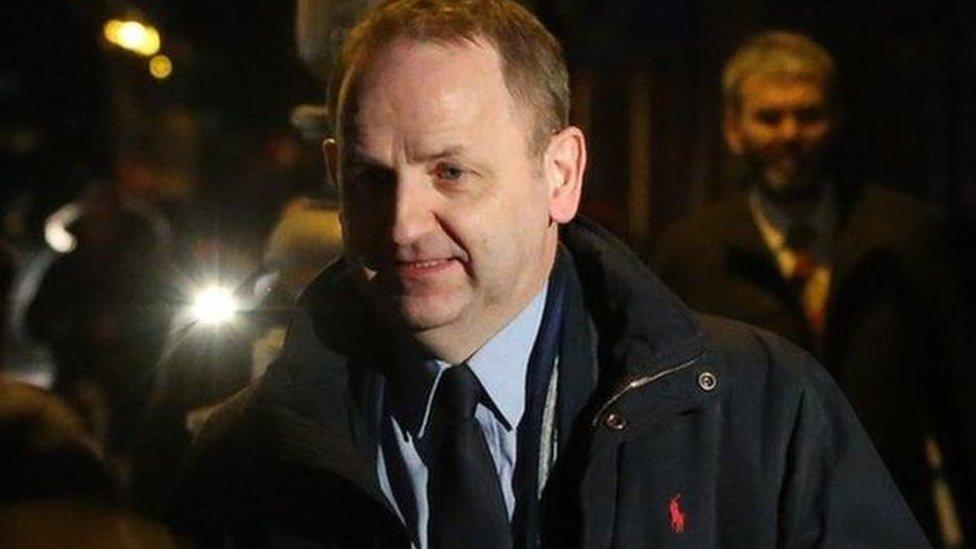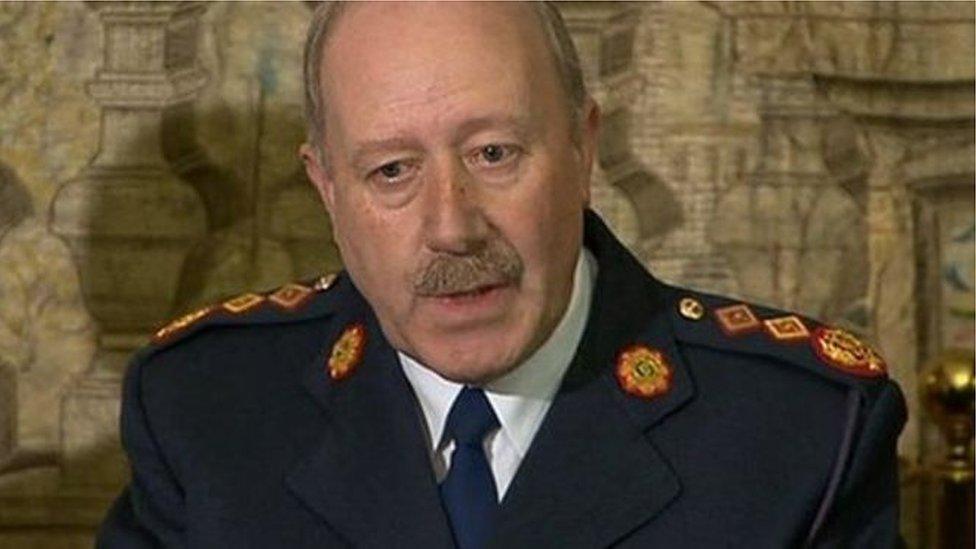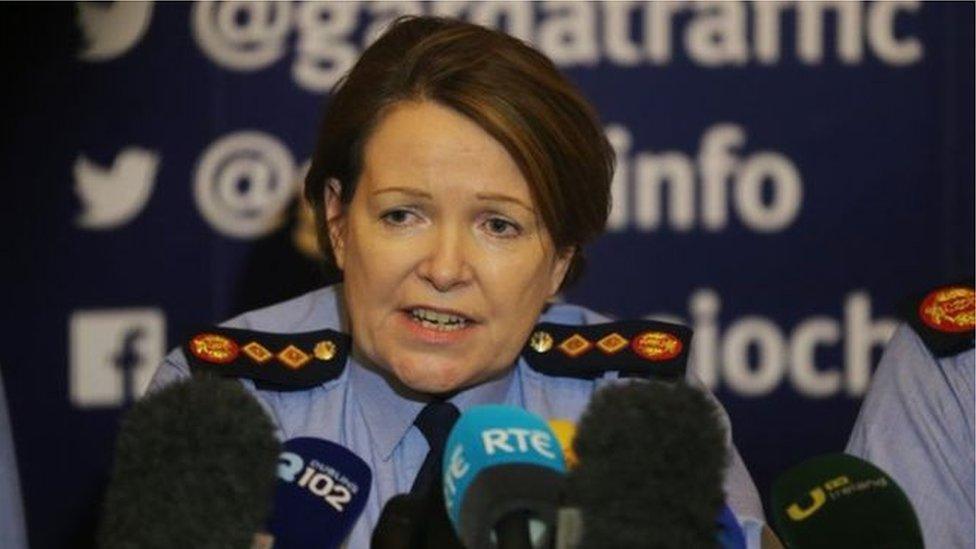Timeline: The Garda McCabe whistleblower controversy
- Published

Police whistleblower Sgt Maurice McCabe was the subject of false allegations
As a supreme court judge in Dublin examines whether senior Irish police officers were involved in an alleged smear campaign against whistleblower Garda Maurice McCabe, BBC News NI looks at the background to the story and outlines allegations of corruption by gardaí, accusations of malice and a false child abuse claim that ultimately led to the Disclosures Tribunal.
December 2012: Sgt Maurice McCabe is ordered to cease using the Garda Síochana (Irish Police) computer system at Bailieborough in County Cavan after he had looked at files linked to the alleged wiping of driving penalty points of well-connected people by other officers, mainly in 2007 and 2008.
A subsequent internal Garda investigation failed to interview the sergeant.
September 2013: A report by the public spending watchdog, the Comptroller and Auditor General, found that the state had lost significant revenue because of irregularities in the penalty points system.
January 2014: The head of the force, the Garda Commissioner, Martin Callinan, tells the Dáil's Public Accounts Committee (PAC) that he personally finds what Garda whistle-blowers have been saying as "quite disgusting".

Former Garda commissioner Martin Callinan
January 2014: Sgt Maurice McCabe gives evidence in private to the Dáil PAC about the cancellation of penalty points. The committee finds him to be credible.
March 2014: Martin Callinan resigns as Garda Commissioner shortly after two cabinet ministers, Eamon Gilmore and Leo Varadkar, call on him to withdraw his comment that Garda whistle-blowers were "disgusting". The Deputy Garda Commissioner, Nóirín O'Sullivan succeeds him, initially on an acting basis.
May 2014: A report compiled by the barrister, Sean Guerin SC, criticises the Garda treatment of Sgt McCabe and recommends a Commission of Investigation into the affair. The Justice Minister, Frances Fitzgerald, agrees to such an enquiry which carries out its work in private. It's led by the former High Court judge, Kevin O'Higgins.
May 2016: The O'Higgins report upheld a number of Sgt McCabe's complaints about serious failings and commended Sgt McCabe, but also noted he was prone to exaggeration on occasion. He also found no evidence to substantiate claims of corruption by gardaí. Commissioner O'Sullivan says she "never had regarded Sgt McCabe as malicious". But, despite her public praise, opposition politicians say leaked documents show her lawyers challenged his "credibility and motivation" right to the end. Earlier suggestions of "malice" seem to have been based upon senior Garda officers' reports to the commissioner of their interviews with Sgt McCabe but he was able to debunk their assessment because he had secretly recorded his interviews.

Garda commissioner Nóirín O'Sullivan
October 2016: Supt David Taylor, the former head of the Garda press office, makes a "protected disclosure" under whistle-blower protection laws saying that he was directed by senior Garda officers including, Martin Callinan and Nóirín O'Sullivan to blacken Sgt McCabe's name. She strongly denied involvement in any campaign of spreading smears. Justice minister Fitzgerald asks retired Judge Iarfhlaith O'Neill to compile a report to her on whether the matter requires further investigation.
December 2016: Judge O'Neill recommends in an unpublished report that a Commission of Investigation, should carry out a private enquiry into who was telling the truth about what Supt Taylor had to say.
February 2017: The Irish government announces that Supreme Court judge, Peter Charleton, will the head the inquiry that will have to look at Commissioner O'Sullivan's mobile phone and text records. She resists calls to stand aside for the duration of the inquiry saying that she was innocent and had done nothing wrong.
February 2017: It publicly emerges under Dáil privilege that senior Garda officers are accused of spreading a false smear that Sgt McCabe had been liked to a case of child sex abuse. It also emerges that the alleged victim was a daughter of one of the officers disciplined because of Sgt McCabe. It was a false claim with no evidence to support it. RTÉ's Prime Time programme reports that the state's child protection agency, Tusla, had created a file on Sgt McCabe and on his family after an employee copied and pasted an allegation of child sex abuse against someone else into the McCabe file. Tusla says it was an "error".
February 2017: The McCabe family reject apologies and say they intend to sue the state. The government also announces a sworn public inquiry to be headed by Judge Charleton after the McCabe family say they are totally opposed to another private investigation. The announcement is made in the midst of a political crisis that temporarily threatens a general election and seems set to result in Enda Kenny's period as taoiseach coming to an end.
27 February 2017: The Disclosures Tribunal, external - set up to investigate the alleged smear campaign against Sgt McCabe - opens its first public sitting. Chaired by Supreme Court judge Peter Charleton, it will examine allegations that senior police officers were involved in the smear campaign. The tribunal is scheduled to report in nine months, and provide an interim report to the Irish government in three months.